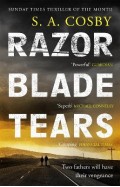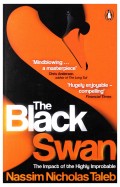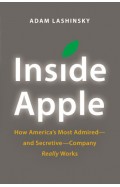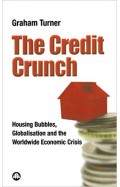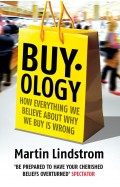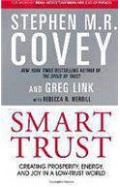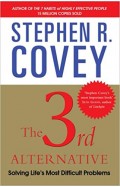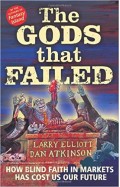Chip War - The Fight for the World's Most Critical Technology
By: Chris Miller
-
Rs 2,785.50
- Rs 3,095.00
- 10%
You save Rs 309.50.
Due to constant currency fluctuation, prices are subject to change with or without notice.
'Pulse quickening. A nonfiction thriller - equal parts The China Syndrome and Mission Impossible' New York Times
An epic account of the decades-long battle to control the world's most critical resource—microchip technology
Power in the modern world - military, economic, geopolitical - is built on a foundation of computer chips. America has maintained its lead as a superpower because it has dominated advances in computer chips and all the technology that chips have enabled. (Virtually everything runs on chips: cars, phones, the stock market, even the electric grid.) Now that edge is in danger of slipping, undermined by the naïve assumption that globalising the chip industry and letting players in Taiwan, Korea and Europe take over manufacturing serves America's interests. Currently, as Chip War reveals, China, which spends more on chips than any other product, is pouring billions into a chip-building Manhattan Project to catch up to the US.
In Chip War economic historian Chris Miller recounts the fascinating sequence of events that led to the United States perfecting chip design, and how faster chips helped defeat the Soviet Union (by rendering the Russians’ arsenal of precision-guided weapons obsolete). The battle to control this industry will shape our future. China spends more money importing chips than buying oil, and they are China's greatest external vulnerability as they are fundamentally reliant on foreign chips. But with 37 per cent of the global supply of chips being made in Taiwan, within easy range of Chinese missiles, the West's fear is that a solution may be close at hand.
'A riveting history. Features vivid accounts and colourful characters' Financial Times
'Pulse quickening. A nonfiction thriller - equal parts The China Syndrome and Mission Impossible' New York Times
An epic account of the decades-long battle to control the world's most critical resource—microchip technology
Power in the modern world - military, economic, geopolitical - is built on a foundation of computer chips. America has maintained its lead as a superpower because it has dominated advances in computer chips and all the technology that chips have enabled. (Virtually everything runs on chips: cars, phones, the stock market, even the electric grid.) Now that edge is in danger of slipping, undermined by the naïve assumption that globalising the chip industry and letting players in Taiwan, Korea and Europe take over manufacturing serves America's interests. Currently, as Chip War reveals, China, which spends more on chips than any other product, is pouring billions into a chip-building Manhattan Project to catch up to the US.
In Chip War economic historian Chris Miller recounts the fascinating sequence of events that led to the United States perfecting chip design, and how faster chips helped defeat the Soviet Union (by rendering the Russians’ arsenal of precision-guided weapons obsolete). The battle to control this industry will shape our future. China spends more money importing chips than buying oil, and they are China's greatest external vulnerability as they are fundamentally reliant on foreign chips. But with 37 per cent of the global supply of chips being made in Taiwan, within easy range of Chinese missiles, the West's fear is that a solution may be close at hand.
'A riveting history. Features vivid accounts and colourful characters' Financial Times
Chip War: The Fight for the World's Most Critical Technology
By: Chris Miller
Rs 3,865.50 Rs 4,295.00 Ex Tax :Rs 3,865.50
Chip War - The Fight for the World's Most Critical Technology
By: Chris Miller
Rs 2,785.50 Rs 3,095.00 Ex Tax :Rs 2,785.50
Zubin Mehta: A Musical Journey (An Authorized Biography)
By: VOID - Bakhtiar K. Dadabhoy
Rs 472.50 Rs 1,050.00 Ex Tax :Rs 472.50
The Life and Legend of the Sultan Saladin
By: Jonathan Phillips
Rs 2,515.50 Rs 2,795.00 Ex Tax :Rs 2,515.50
Poor Economics: The Surprising Truth about Life on Less Than $1 a Day
By: Abhijit Banerjee
Rs 2,335.50 Rs 2,595.00 Ex Tax :Rs 2,335.50
The Book of Why: The New Science of Cause and Effect - (PB)
By: Judea Pearl
Rs 1,816.75 Rs 2,795.00 Ex Tax :Rs 1,816.75
Razorblade Tears - The Sunday Times Thriller of the Month from the Author of BLACKTOP WASTELAND
By: S. A. Cosby
Rs 971.75 Rs 1,495.00 Ex Tax :Rs 971.75
The Black Swan The Impact Of The Highly Improbable
By: Nassim Nicholas Taleb
Rs 2,965.50 Rs 3,295.00 Ex Tax :Rs 2,965.50
Inside Apple How Americas Mo Admired And Secretive Company Really Works
By: Adam Lashinsky
Rs 1,012.50 Rs 1,350.00 Ex Tax :Rs 1,012.50
Buyology How Everything We Believe About Why We Buy Is Wrong
By: Martin Lindstrom
Rs 2,515.50 Rs 2,795.00 Ex Tax :Rs 2,515.50
The 3rd Alternative Solving Life s Most Difficult Problems
By: Stephen Covey
Rs 516.75 Rs 795.00 Ex Tax :Rs 516.75
The Life and Legend of the Sultan Saladin
By: Jonathan Phillips
Rs 2,515.50 Rs 2,795.00 Ex Tax :Rs 2,515.50
Poor Economics: The Surprising Truth about Life on Less Than $1 a Day
By: Abhijit Banerjee
Rs 2,335.50 Rs 2,595.00 Ex Tax :Rs 2,335.50
The Book of Why: The New Science of Cause and Effect - (PB)
By: Judea Pearl
Rs 1,816.75 Rs 2,795.00 Ex Tax :Rs 1,816.75
Razorblade Tears - The Sunday Times Thriller of the Month from the Author of BLACKTOP WASTELAND
By: S. A. Cosby
Rs 971.75 Rs 1,495.00 Ex Tax :Rs 971.75
No recently viewed books available at the moment.
Zubin Mehta: A Musical Journey (An Authorized Biography)
By: VOID - Bakhtiar K. Dadabhoy
Rs 472.50 Rs 1,050.00 Ex Tax :Rs 472.50
Chip War: The Fight for the World's Most Critical Technology
By: Chris Miller
Rs 3,865.50 Rs 4,295.00 Ex Tax :Rs 3,865.50
Chip War - The Fight for the World's Most Critical Technology
By: Chris Miller
Rs 2,785.50 Rs 3,095.00 Ex Tax :Rs 2,785.50
The Life and Legend of the Sultan Saladin
By: Jonathan Phillips
Rs 2,515.50 Rs 2,795.00 Ex Tax :Rs 2,515.50
Poor Economics: The Surprising Truth about Life on Less Than $1 a Day
By: Abhijit Banerjee
Rs 2,335.50 Rs 2,595.00 Ex Tax :Rs 2,335.50
The Book of Why: The New Science of Cause and Effect - (PB)
By: Judea Pearl
Rs 1,816.75 Rs 2,795.00 Ex Tax :Rs 1,816.75
Razorblade Tears - The Sunday Times Thriller of the Month from the Author of BLACKTOP WASTELAND
By: S. A. Cosby
Rs 971.75 Rs 1,495.00 Ex Tax :Rs 971.75












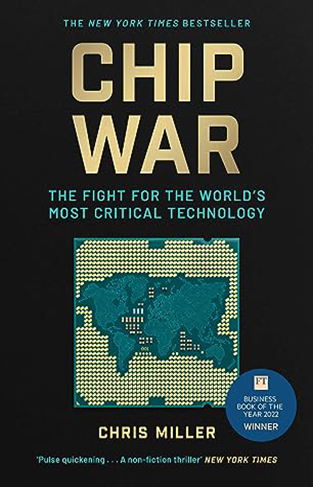
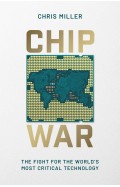
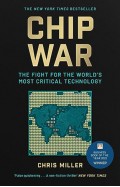
-120x187.jpg?q6)





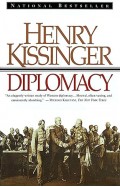

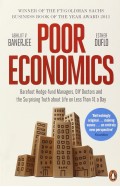
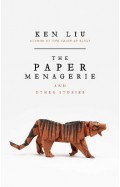
-120x187.jpg?q6)
